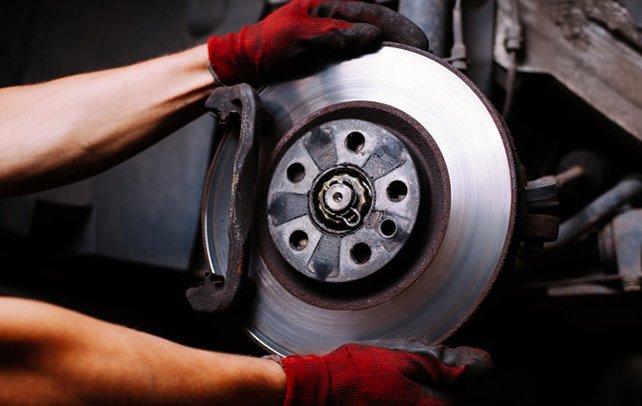Simple Ways To Rainproof Your Car Before Cloudbursts Hit
Even though the rainy seasons feel extremely pleasant bringing a lot of respite from the horrendous summer heat, it can often lead to a lot of problems for your car. Yes, once the torrential rains hits your city there will be no respite for your car that needs special conditioning before you take it for a spin on the wet asphalt. Although water is the primary thing you might be using to clean your car on a regular basis, many feel that even rainwater is great for your car. Here’s where most of you are wrong. Rainwater might contain microscopic debris that can scratch your car’s surface and cause the paint to deteriorate. Not to forget the humidity that can very well rust and rot the parts you didn’t even know existed inside your car. So if you have been fearful of how the rainy season will treat your car, here are some simple tips to protect your vehicle.
- Regular Service

If there’s one thing that improves the life of your engine, is regular maintenance and servicing. Regardless of the fact whether you drive a petrol or a diesel, timely maintenance will ensure that your engine doesn’t break down amidst the moisture ridden air. Changing the engine oil before the rainy season will also prevent any humidity from corroding the insides of your engine. A well oiled machine has a much better chance of survival in the humid weather and wet roads than a vehicle that hasn’t been serviced for a while. Servicing not only includes cleaning your engine but will also include a thorough cleanup of your vehicle to remove any moisture from your car.
- Replace Your Tyres

If you live in a country or state with a lot of rains, there’s no way you can continue using the same tyres for every season. The summer season is mostly dry across all regions, but your wheels certainly need more grip and traction to ensure a safe drive on slippery roads. Keep a close check on your tyre treads and do not avoid replacing them if you feel they’re worn out. Poor traction on your tires not only curbs your engine’s performance but can also result in skidding and possible hydroplaning that can lead to serious accidents. Ideal depth for tyre treads should be between 3mm to 4mm to provide sufficient grip on wet roads. You can also check their dept manually to know if your tyres need replacement or not.
- Protect The Paint
Leaving your vehicle in the rains to clean it sounds like a great idea and a definitive time saver. But in reality, rainwater is quite different from tap water and can do more damage than good to your vehicle’s exteriors. The raindrops can contain several contaminants that can corrode the paint and rust the vehicle’s surface. Washing the vehicle with regular water is the best solution to remove any debris that raindrops may contain. For best results use wax polish and sealant to keep the raindrops from accumulating on your car. Accumulated raindrops can also act like mini magnifying glass and coupled with sunlight, can literally burn the paint off your car’s body. Displacing the moisture sure sounds like a pesky task in rainy season, but a little toiling can take you a long way. Investing in a body cover can also keep your car from getting wet while parked and will save you from any additional cleaning before you take it for a spin.
- Repair Brakes

Wet roads and worn out brakes certainly sound like a recipe for disaster. Hence it is extremely vital that you keep a close check on your brake shoes and calipers for any worn out parts. Do not feel thrifty while replacing these essential safety hardware to ensure a safe drive in the rains. Roads can often get slippery due to moss buildup making it extremely dangerous for drivers and pedestrians. Replacing the brake parts and keeping all the parts well oiled will not only keep you safe from such booby traps, but will also improve your vehicle’s handling even in poor visibility. Even with advanced safety features such as Anti-lock braking system and Electronic Brakeforce Distribution, you would still need to replace your brake pads regularly to stop the vehicle when you want it to stop.
- Keep Insides Dry and Clean

If you think that rainwater is only bad for the outside of your car, then you’re certainly going to end up with a car that smells like a wet dog. No matter how hard you try, you cannot keep moisture from entering your vehicle in the rainy season. It will be either through your wet shoes, a window left cracked by mistake, or a rain drenched friend that you picked up after work. Therefore, displacing the moisture inside seems the only way. Installing window visors will definitely be a cool addition to your vehicle and keep a lot of rain drops outside.
Keeping a portable vacuum cleaner inside the car can also help you quickly remove any dirt and moisture from your car’s floors. You can also cover the seats with water resistant upholstery or covers that keep them from getting damp. Last but not the least, make sure you use a car perfume inside the vehicle to keep things fresh. But getting a freshener surely doesn’t mean you can ignore regular cleaning. The aroma cannot mask the musty smell of a damp and dirty car for long, hence following the above instructions is a must.
Safe driving tips & essentials items will help you commute safely in heavy rain and just because the rain is a little heavy, doesn’t mean you have to hide indoors, while missing out on the fun of driving under the grey skies. The above tips are not only easy to follow but can very well protect your car from rotting in the contaminated rain water. Make sure you follow the above instructions to ensure a safe and fun driving this rainy season.
If you want to read more tips & tricks check out our partner Car Advisory stories at CarBay
atbp.ph



















